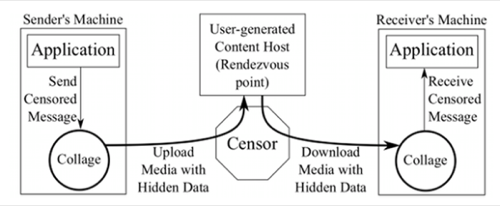NSA to Spy on the Internet. The high-tech National Security Agency is establishing a program of covert surveillance of United States infrastructure facilities and on the Internet, according to the Wall Street Journal. The fantasmagorically creepy name they’ve chosen for it goes off like a warning siren.

“The federal government is launching an expansive program dubbed ‘Perfect Citizen’ to detect cyber assaults on private companies and government agencies running such critical infrastructure as the electricity grid and nuclear-power plants, according to people familiar with the program.”
China approves Google staying. Google threatened to pull out of China, less because of its tyranny than its tacit approval of hacking. It stopped its China service and redirected that URL to Google’s Hong Kong service. Now, it has agreed to put one more step between the Chinese consumers and unfiltered results. It’s important to remember, Google could have simply begun to render uncensored results on its China site. It did not.
“Errors” in micro-blogging sites in China probably indicate government interference. Messages ranging from “beta” to “under maintenance” errors have begun showing up on half a dozen native micro-blogging services.
Software allows dissidents to send hidden messages in Twitter messages and Flickr photos. The Collage program allows people a way around proxy servers and other easily shut-down avenues to speak freely online. If this works reliably, and can scale out to other shared-content sites, it could be a game-changer. However, as one online security specialist said to me, “Any government or organization, given enough time and enough money, can find anyone else online.”

Egyptian blogger released. After over two years in prison, uncharged, Mus’ad Abu Fagr, proponent of Bedouin rights, was finally released on Tuesday. Welcome home, Mr. Fagr!
Egyptian blogger goes on trial. Apparently worried about vacancy rates in their jails, Egypt is trying Amr Gharbeia this weekend before a criminal court in the Cairo district of Khalifeh on on politically-motivated cover-charges of insult, defamation, blackmail and “abuse of the Internet service.”
Hundreds of influential Chinese bloggers’ accounts deleted. Popular Chinese blog service Sohu deleted over 100 bloggers’ accounts on July 14. Many are “influential public opinion leaders, political dissidents and citizen rights activists.”
Photo of the Conciergerie by Ian Duffy
















